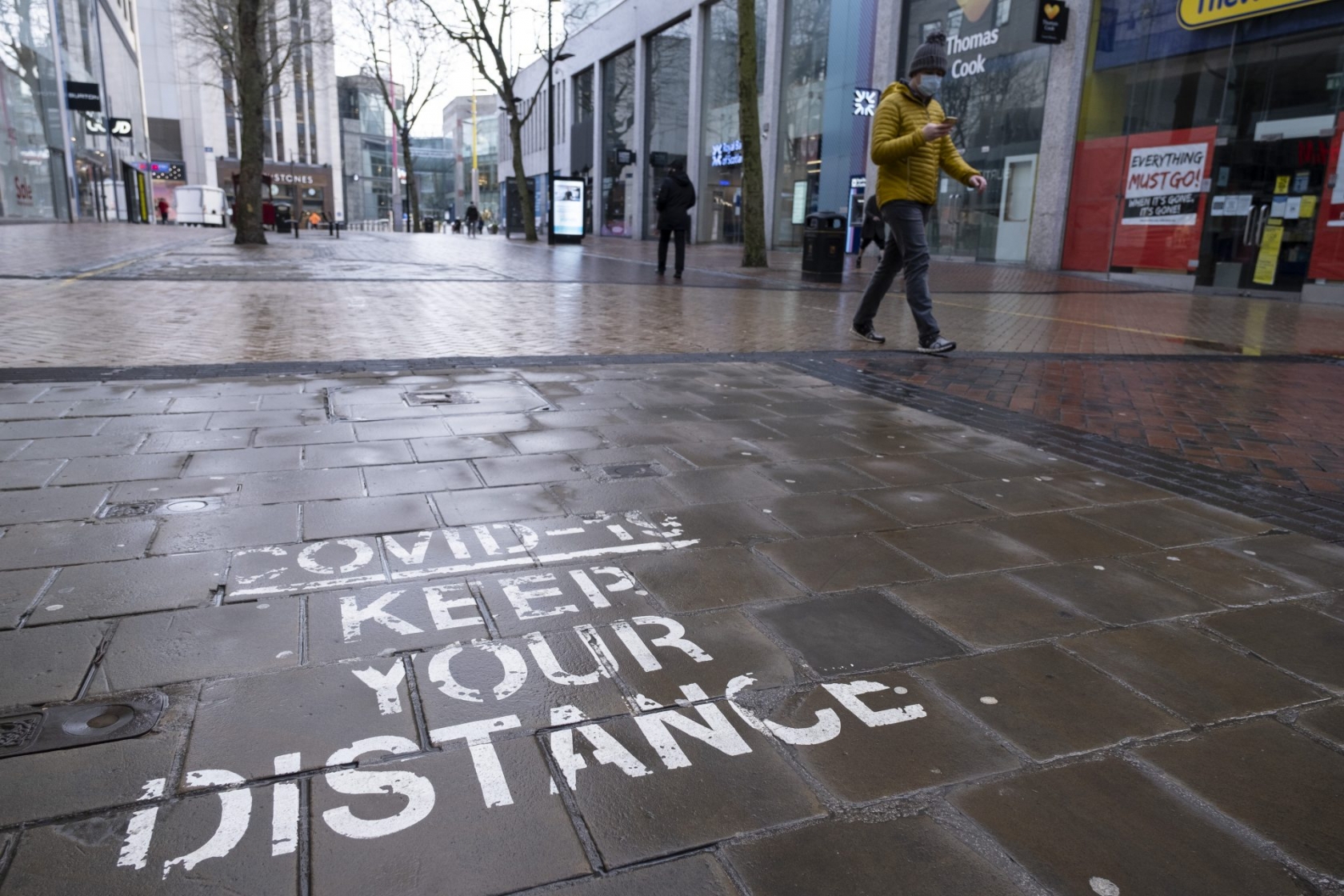Written by Lauren Geall
If you see a friend or family member breaking lockdown rules, should you call them out on it? Stylist takes a closer look at the debate surrounding this all-too-relatable talking point.
Navigating the everchanging lockdown rules hasn’t always been easy.
Getting used to having restrictions placed on our everyday lives has at times been a challenge – especially when the government’s U-turns have played havoc with our expectations – and we’ve had to grow accustomed to policing our behaviour in ways we never imagined we would have to.
It’s been tough, but most of us have come to terms with whatever needs to be done to curb the spread of coronavirus.
That doesn’t mean everyone’s interpretation of “following the rules” is the same, however. Partly because the rules have, at times, lacked clarity (can anyone tell me what ‘local’ really means?) and partly because some people are reluctant to admit the severity of the situation, we’ve reached a moment in the pandemic where we’ve all adopted our own definitions of ‘right’ and ‘wrong’ behaviour.
The problem? Some have been taking a little more creative license than others.
You only need to look at today’s headlines to get a taste of what’s going on. We’re not just talking about the people blatantly breaking the rules and throwing house parties, which I think we can all admit is pretty inexcusable behaviour. Instead, we’re talking about the reports of people not social distancing, meeting up with groups of friends, driving to a beauty spot for exercise and forming more than one ‘support bubble’ at once.
By law, all these people are rule-breakers – but they’re also not being completely reckless. Indeed, under their “interpretation” of the rules, they may believe themselves to be doing nothing wrong.
Against a backdrop of rising infection rates and a third national lockdown, these breaches of the official rules have left many of us questioning our responsibility during the pandemic. Sure, we’re responsible for our own behaviour – but is it up to us to call out our friends and family when we see them taking license with the rules?
When I asked people on Twitter whether they’d talk to a friend who was breaking the lockdown rules, the responses were mixed. While for some the answer was an unequivocal yes, for others, things weren’t so clear cut.
“It depends what they were doing,” one person pointed out. “I don’t know anyone being reckless. If I saw three people out walking together – no.”
A woman called Natasha shared a similar response: “I would if they were being really reckless. If it’s just a walk or something small, probably not, but if I saw them planning a party or something I think I would say something.”
For Nick*, however, it was a definite no. “It’s so hard to know everyone’s circumstances, and the rules are so vague, so no, I wouldn’t,” he says. “No-one knows who’s in who’s bubble, who is a key worker or not, or what ‘local’ means…”
Among my colleagues, the consensus was similarly mixed. For many, the idea of calling out friends for ‘breaking’ the rules feels a step too far – but most said they would be willing to do so if people were really pushing it.
“It’s a tricky one,” one colleague tells me. “A few of my friends have slightly broken the rules, but I’ve been able to understand their reasons.
“However, if my friends blatantly broke the rules just because they’re bored – by inviting people round for a birthday party, for example – I don’t think I’d have a problem calling it out. I obviously wouldn’t want to argue with them, so I’d probably say, ‘Why are you doing that? Can’t you see what’s happening?’ and hope they’d realise why it’s bad.”
They add: “If they didn’t change their behaviour, I’d re-evaluate what I think about them as a friend and a human.”
Megan Murray, Stylist’s senior digital writer, says she thinks it’s OK to share what you’re thinking if a friend breaks the rules – if only to give them a chance to think about what their actions might mean for the people around them.
“Personally I would never tell my friends what to do or get angry at them about their own choices, but I would say, ‘Are you sure you want to do that?’,” she tells me.
“It happened to me recently, when a friend told me she was planning to visit a guy she’s casually seeing. I felt comfortable telling her, ‘You do you but think about the people you may be affecting’. It felt important to remind her that she has housemates who she could endanger.”
Kayleigh Dray, Stylist’s digital editor-at-large, shares a similar opinion. For her, reminding friends and family that “there’s a pandemic on” feels like a personal responsibility – even if it’s tough to do so.
“I find the calling people out thing so hard (it harkens back to high school, when everyone’s dead afraid of being labelled a goody two shoes),” she admits. “It’s tough as the rules are so vague, and I like to think people are smart enough to evaluate their own risks. But if someone does something really bloody stupid, I’d feel dutybound to say something. Even if it does make me feel like a massive square.”
Overall, then, it seems most of us would be willing to call out friends if they were breaking the rules in a way which seems reckless – but for the most part, we trust others to take the necessary steps to assess their own risks. Calling out friends isn’t easy, but with the pandemic reaching never-before-seen levels and the NHS at risk of being overrun, many people are beginning to feel a personal responsibility to remind people not following the rules of the risks of their behaviour.
The problem? As many of the above responses have highlighted, calling out friends for their behaviour can be awkward, frustrating and uncomfortable – so what’s the best way to go about it?
According to Dr Kalanit Ben-Ari, a psychologist, author and therapist, one of the best things we can do in these kinds of situation is try not to see it as a confrontation.
“My advice would be to avoid ‘confrontation’ and to avoid blaming, shaming or criticising your friends,” she says. “Confrontation is strong in both name and nature, but if you choose to share your thoughts and boundaries in a respectful way, there are no cons.”
Dr Ben-Ari recommends starting the conversation by sharing how you’re feeling, so the other person understands where you’re coming from.
“The conversation might begin with acknowledging that it’s a challenging and uncertain time,” she suggests.
“If your friends are urging you to break any restrictions, you might like to respond with something like, ‘Given the latest news I don’t feel comfortable meeting up, but I can’t wait for it to be allowed as I really miss you too’.
“Though it might be challenging, try to avoid any judgement and recognise that they face their own choices.”
Next time you feel like your friends are taking things one step too far, why not give Dr Ben-Ari’s non-confrontational approach a go?
Not only does it make talking to your friends about this difficult subject a little bit easier, but it also provides you with an opportunity to share how you’re feeling and maybe even build a stronger bond during this challenging time.
*name has been changed
Images: Getty
Source: Read Full Article



